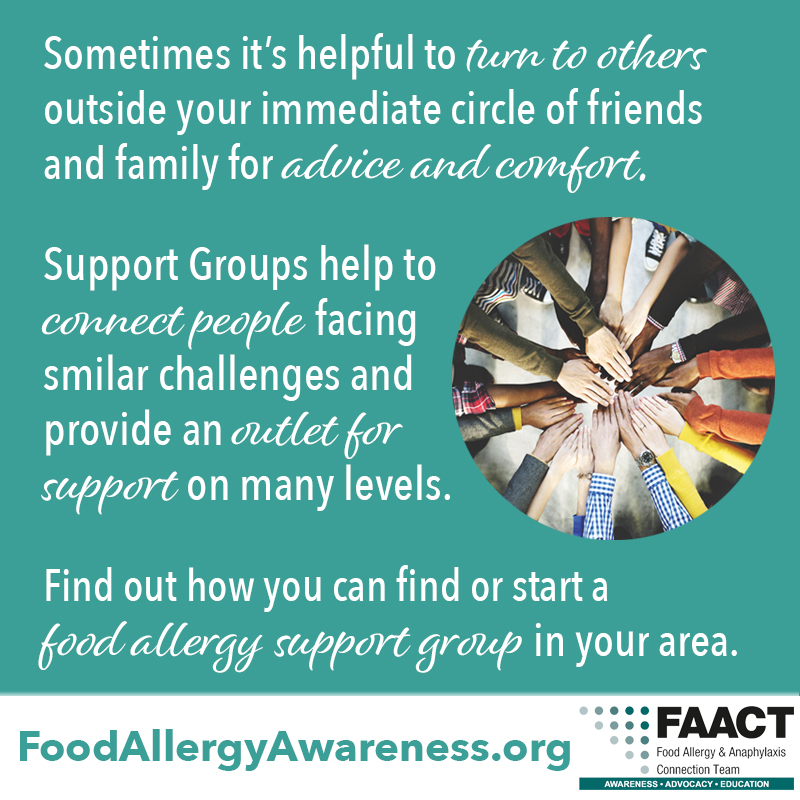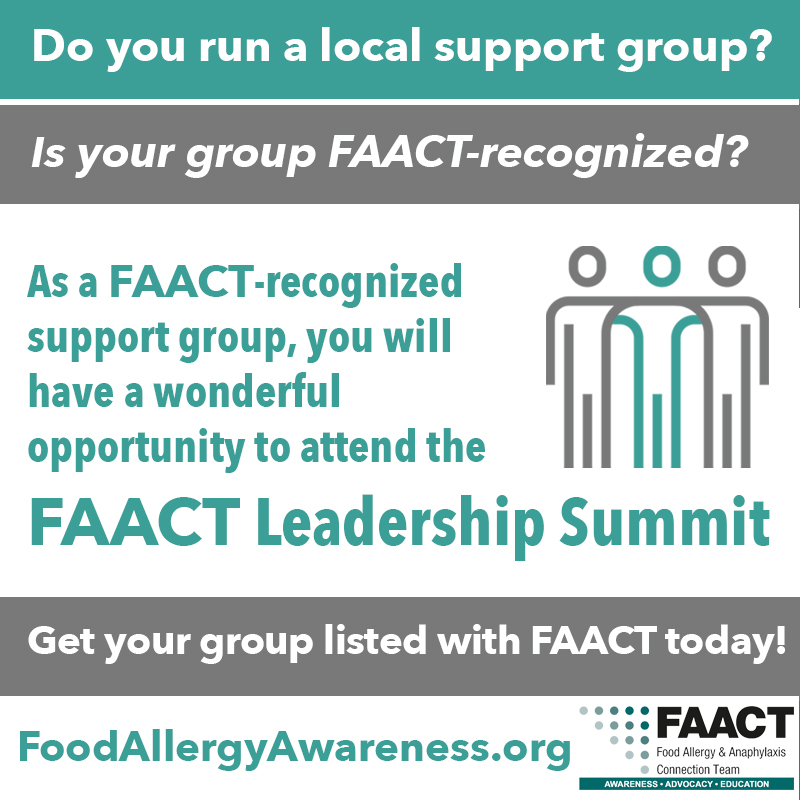Education
Support Groups
Back to Category View
How To Start a Support Group
Starting a support group can be a rewarding and fulfilling experience. It can also provide founders and leaders with a sense of accomplishment and success that cannot be measured with any paycheck, bonus, or promotion.
If you have the ideas, energy, time, and passion to help others managing food allergies, anaphylaxis, and other related disorders, starting a food allergy and anaphylaxis support group may be your calling!
FAACT’s “How to Create a Successful Support Group” primer is available to like-minded individuals interested in starting a support group in their area. The primer guides you through the different stages of forming a local group, including the early stages of formation.
For more information and to request your support group primer today, contact Lisa Rutter, Director of Support Group Development.

How To Become a FAACT-Recognized Support Group
Becoming a FAACT recognized support group will add credibility to your group, provide you with valuable resources, and is offered at no cost.
FAACT Support Group Benefits
- Member referrals
- Support group listed in FAACT's support group database
- Support group listed on FAACT's website
- Access to FAACT's quarterly support group e-newsletter
- Access to FAACT's Support Group Leader private Facebook page
FAACT Support Group Requirements
- Leader has experience with and basic knowledge of food allergies/anaphylaxis.
- At least one medical professional serving on a medical advisory board (MAB), which one MUST be a board-certified allergist.
- Must provide a Letter of Support from your Medical Advisor on said letterhead.
- Must have been in existence for at least three months.
- Must have a minimum of six members.
- Must provide two testimonial letters from group members.
- Must complete the FAACT Support Group Update Form annually.
- Must commit to at least one, in-person support group meeting and/or community event per year.
- Online support groups are encouraged to submit their information and will need to comply with requirements 1-7.
FAACT’s “recognized” support groups are groups that meet the criteria listed above. FAACT does not endorse support groups and recommends that you speak to your doctor about specific medical questions pertaining to your particular situation.
Interested in Being a Support Group Leader?
The success or failure of a support group depends in large part on the skills and knowledge of its leaders. You don’t have to be an expert in the field of allergies and anaphylaxis to lead a food allergy support group. However, obtaining the basic knowledge and some understanding of running a support group can provide the group with positive leadership and, in turn, advance the group’s mission.
Having support group co-leaders helps ensure the responsibility of facilitating the group does not become a burden on one individual, leaving her or him them feeling “burned out.” If one leader has other responsibilities that require more of his or her personal time, having another leader also helps to ensure that someone is there to share the load. Co-leaders provide excellent feedback and can help in the decision making progress.
Characteristics of a good support group leader include:
- A strong passion and vision for the cause
- Confident in their vision
- Values, respects, and cares for people
- Creative, energetic, and determined
- Excellent communication skills
- Listens well
- Experience in a leadership position
- A commitment to prioritizing the group’s best interests
- Capable of controlling personal views
- Willing to work toward the group’s mission
- Able to initiate programs and activities
- Confident public speaker
- Keeps group discussions positive and can help resolve differences
- Possesses problem-solving skills
- Organized
For more information on becoming a support group leader, contact Lisa Rutter, Director of Support Group Development.